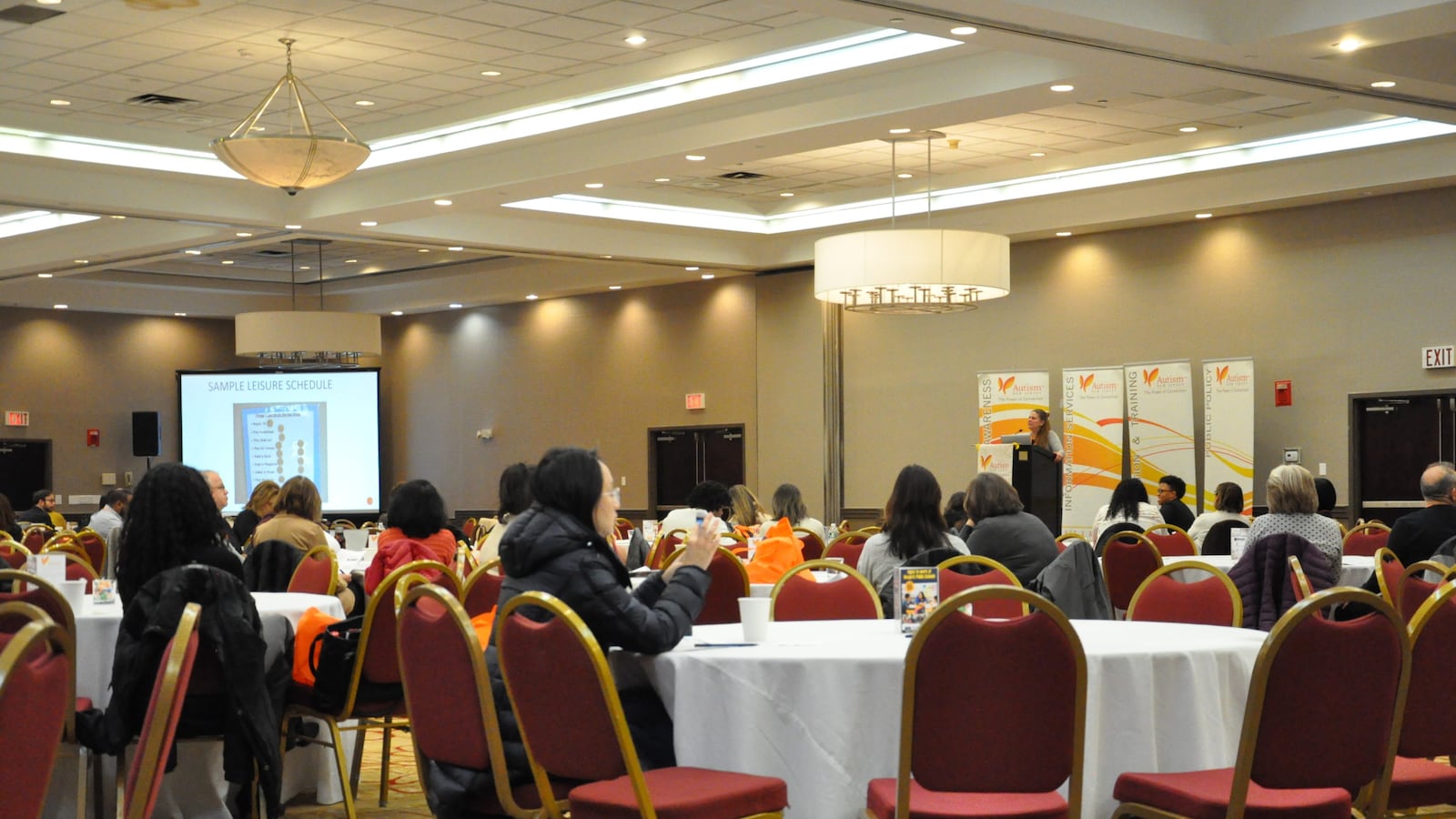Jenise Reedus, a mother of a Newark high school junior with autism, says her daughter’s forthcoming transition to adulthood is full of uncertainties. Planning for the future can be daunting.
Reedus was among nearly 500 people who attended Autism New Jersey’s transition conference Monday, about life after high school for people with autism. Newark Public Schools was among the sponsors of the event, held at the DoubleTree Newark Airport hotel.
“I’m hoping to process what might be the right fit for her,” Reedus said, noting her daughter hasn’t yet decided if she wants to go to college or apply for jobs. “Then, how will we go about accessing it? I’m getting a lot of information here.”
The gathering focused on so-called “transition planning,” which begins for people with autism at age 14 and continues until they reach 21 and are no longer eligible for school support services that many have come to rely on.
The federal Individuals with Disabilities Education Act mandates transition plans for all students who have IEPs, or individualized education plans. They’re created by the student, together with those involved with the student’s care and education, such as parents and school employees. Research has shown that student involvement in their own transition planning encourages self-advocacy skills and makes the process more student-centered. The plans typically identify the student’s post-graduation plans, their academic and non-academic abilities, needed accommodations, and achievable goals on the way to adulthood.
Newark Public Schools currently serves 854 students with autism, according to a Chalkbeat public records request, and several of its schools have programs geared toward students with autism. Newark Superintendent Roger León’s district plan calls for improvements to the special education program, though it doesn’t specifically mention transition plans. Several district officials were at the conference, including the directors of the Office of Special Education, Carolyn Granato and Marilyn Mitchell.
A challenge of transition planning is its time- and resource-intensive nature. When parents don’t understand the ins and outs of the complex process, their children may not get the supports they need.
The goal of the conference is to help families craft “a roadmap to get [their children] into adulthood successfully,” said Autism New Jersey’s Executive Director Suzanne Buchanan.
“Raising a son or daughter with autism is one of the most joyous and challenging experiences of a parent’s life, and chances are, we have information or connections or resources that can make your life better in some way,” she said.
In nearby New York City, students with pronounced disabilities learn real-life skills ahead of their transition out of school. By identifying early on what they enjoy doing in the classroom, they are better prepared for future jobs.
After remarks from Buchanan, León, and Newark’s North Ward Center CEO Michele Adubato, and a keynote address from Nkechi Okoli, the senior director of transition for the New Jersey Division of Developmental Disabilities, conference attendees could attend various workshops on topics ranging from how technology can benefit adults with autism to the financial and legal needs of families of children with special needs.
When it comes to transition planning, information is power, said Reedus — and the onus to gather and synthesize that information often falls to parents.
“For our children, it’s more difficult. It’s our job to help them find those opportunities, and it’s not an easy task,” Reedus said. “All parents want their kids to be independent and confident. Parents of children with autism want the same.”

